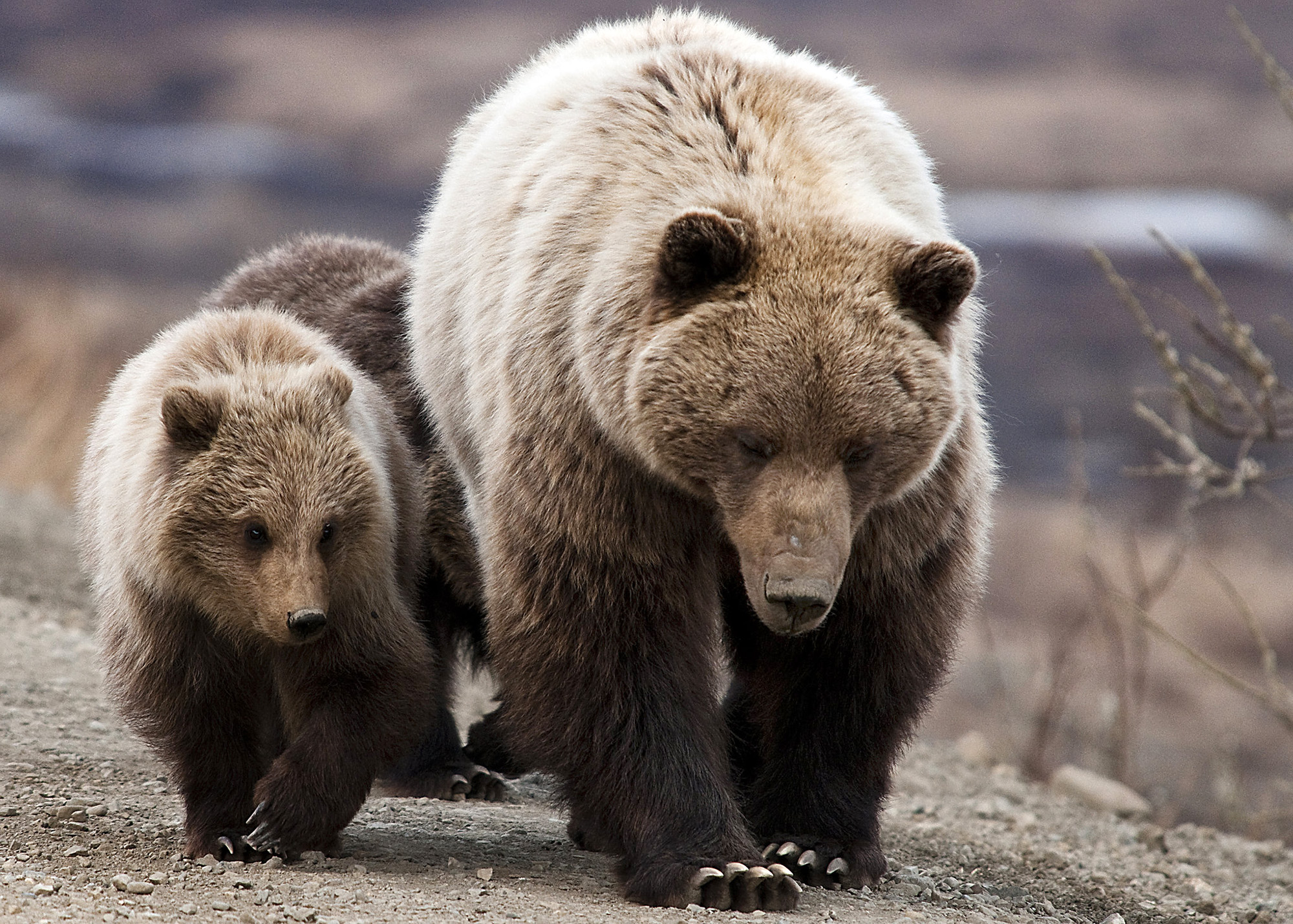A wildlife photographer videoed a grizzly sow and two cubs on Vancouver Island, British Columbia, this summer. The footage documents the first verified sighting of grizzly cubs on the island.
The professional photographer, Catherine Babault, first spotted the bears in July and posted a video of the sow grizzly and her two older cubs to YouTube on Aug. 10. The footage shows the trio retreating from a herd of Roosevelt elk at an undisclosed location between Port Hardy and Campbell River on the north end of the island, according to the Western Standard.

“This is a very rare sighting,” Babault told Global News. “I was worried a little bit for the Roosevelt elk, but they showed a lot of … strength. They were also a herd, so they were big numbers. And they started to chase the grizzly bears, which was very, very unusual. And I’m glad that it didn’t end up the other way around.”
Grizzlies have been spotted swimming from the mainland B.C to Vancouver Island several times in the past 10 years, large carnivore specialist for the Province of British Columbia Garth Mowat told Chek News, though those are usually younger male bears. The Johnstone Strait is 1.6 miles even at its narrowest point, which is a difficult swim for young cubs.
The bears in Babault’s video are too large to have been born this year, and Mowat estimates they were born in January or February 2023. It’s impossible to know whether they were born on the B.C. mainland or on Vancouver Island, but Mowat suspects that they may have swum the strait this year since no one reported sightings of the sow and cubs last year.
At least one expert disagrees. The cubs were probably still too small to make the swim this year, said Nicholas Scapillati, executive director of the Grizzly Bear Foundation.
“That’s probably what this mama did, and then probably met a male over there on the island – an island boy – and then had a couple of cubs,” he told Global News. “It’s pretty exciting.”
However the three grizzlies ended up there, the presence of the family group could mean grizzlies have taken up more permanent residence on the island, which hasn’t happened since the last Ice Age, when Vancouver Island was still attached to the mainland.
Scapillati believes a more established population of grizzlies will be good for Vancouver Island’s ecosystem.
“Grizzly bears are the great cultivators,” Scapillati said. “You know, they’re eating berries, they’re eating glacier lily bulbs, they’re eating all kinds of plants, and then they’re pooping them out across the landscape and expanding and maintaining these populations.”
Although the sightings are exciting, Mowat says grizzlies won’t take over Vancouver Island anytime soon. A substantial breeding population will grow slowly.
“I don’t think there will be massive changes that people are going to perceive except they are going to go camping and see a grizzly bear instead of a black bear.”
Read Next: Alberta Brings Back Grizzly Bear Hunting, But Only for ‘Problem’ Bears
The island is home to somewhere between 7,000 to 12,000 black bears, according to Bear Conservation, making it one of the densest populations on the planet. (There are as many as 150,000 black bears in British Columbia alone and somewhere around 15,000 grizzlies in B.C.) Vancouver Island black bears are a subspecies, Ursus americanus vancouveri, which is slightly larger than mainland black bears.
Exactly how an increased grizzly presence will affect Vancouver Island’s black bears remains to be seen, though grizzlies have been known to kill and eat black bears in areas where the species overlap.

